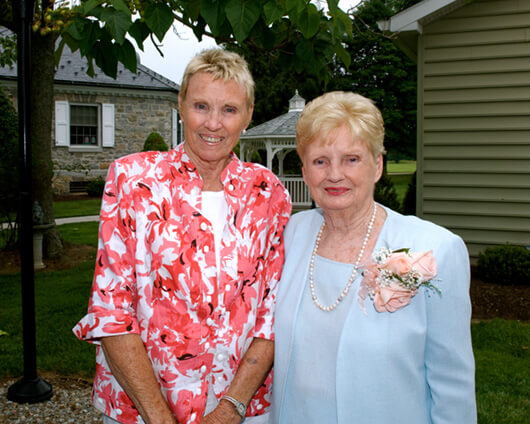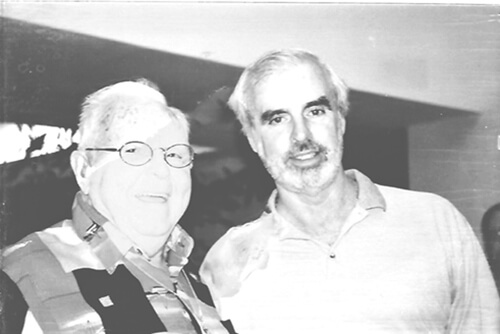Latest News
Clinical News December
Emotional Sobriety and Self-Care
Written by Hannah Rose, LGPC — Relapse Counselor at Ashley
The holiday season can be one filled with joy, gratitude, and light… or one that is crippled by anxiety, tension, and stress. During this time of year, more than ever, practicing self-care and tapping into the invaluable concept of “emotional sobriety” is essential. Self-care, contrary to popular belief, is not selfishness. In 12-Step fellowships, the literature states that “we cannot transmit what we don’t have.” We cannot pour from an empty cup, and we must put the oxygen mask on ourselves before trying to put it on someone else. So what can we do to take care of ourselves?
As Thich Naht Hanh says, “rather than attempting to manage our lives by watering the leaves, we must start internally by watering the roots.” Thus, the first part of this process must be identifying where our roots grow, and what nourishes them. My roots lie in mindfulness and meditation practices, yoga, communicating effectively and directly with loved ones, setting boundaries, and drinking iced coffee.
I passionately believe in mindfulness-based stress reduction, utilizing a myriad of techniques to help the individual cultivate inner peace and combat negative self-talk and anxiety. I have built much of my practice on a quote by the Persian poet Rumi who states that, “Your task is not to seek for love, but merely to seek and find all the barriers within yourself that you have built up against it.” In this respect, I believe that change must begin internally. Utilizing an integrative therapeutic model, I like to engage clients in practices rooted in Cognitive-Behavioral Therapy, Narrative Therapy, and Existential Therapy.
I have learned time and time again that self-care, like recovery, must come first, or nothing seems to come second. In recovery, we have the privilege and honor of delving into a process of personal development, while also getting to bear witness to others’ spiritual journeys and internal growth. This process can fill us with gratitude, but it can also be incredibly draining. Remember to take care of oneself, whatever that may look like.
Hannah Rose, LGPC
 Hannah began her experience at Ashley in August of 2015 as a counselor and case manager for Ashley’s Intensive Outpatient Treatment facility in Bel Air, Maryland. Hannah transitioned to Ashley’s inpatient campus in April of 2016 and is currently a counselor in our Relapse Program — specifically designed for patients who have been in treatment before and have relapsed or are in danger of relapsing. Hannah has a Bachelor’s Degree in Psychology and Master’s Degree in Clinical Mental Health Counseling.
Hannah began her experience at Ashley in August of 2015 as a counselor and case manager for Ashley’s Intensive Outpatient Treatment facility in Bel Air, Maryland. Hannah transitioned to Ashley’s inpatient campus in April of 2016 and is currently a counselor in our Relapse Program — specifically designed for patients who have been in treatment before and have relapsed or are in danger of relapsing. Hannah has a Bachelor’s Degree in Psychology and Master’s Degree in Clinical Mental Health Counseling.
Free CE Event
Motivational Interviewing in the Treatment of Substance Use Disorders [1 CE credit]
Co-sponsored by: 
Date: Wednesday, January 18, 2017
Place: Maryland Addiction Recovery Center
8600 LaSalle Road • Carroll Building/Suite 212
Towson, MD 21286
Time: 6:30 – 7:00 pm – Food & Networking
7:00 – 8:00 pm – Presentation
Topic: This workshop will introduce participants to the theoretical basis and tenets behind Motivational Interviewing (MI), a humanistic, client-centered intervention style based on the Transtheoretical Model (stages of change) of behavior change. Dr. Musser will compare pre-existing theoretical models and how MI techniques can enhance interventions to facilitate behavior change in sometimes resistant clients. He will also discuss strategies for incorporating MI among diverse client populations and issues.
This workshop is designed to help participants:
SEATING IS LIMITED. To register, contact Robert Devereux at RDevereux@AshleyTreatment.org.
Presenter: Peter Musser, PhD
 Dr. Peter Musser is a licensed psychologist at a private practice in Columbia, MD and specializes in substance use disorders, dual diagnosis, intimate partner abuse, and trauma healing. Previously, he worked at Ashley Addiction Treatment as department head of psychological services where he developed and implemented interventions based on Motivational Interviewing (MI). He has presented workshops on MI for the past 15 years and is published in peer-reviewed journals on the topics of MI, addiction, and abusive behavior change. Dr. Musser received a Masters Degree in Psychology from The Catholic University of America and a Doctorate from The University of Maryland Baltimore County. He completed his Doctoral Internship at the VA Medical Center in Perry Point, Maryland.
Dr. Peter Musser is a licensed psychologist at a private practice in Columbia, MD and specializes in substance use disorders, dual diagnosis, intimate partner abuse, and trauma healing. Previously, he worked at Ashley Addiction Treatment as department head of psychological services where he developed and implemented interventions based on Motivational Interviewing (MI). He has presented workshops on MI for the past 15 years and is published in peer-reviewed journals on the topics of MI, addiction, and abusive behavior change. Dr. Musser received a Masters Degree in Psychology from The Catholic University of America and a Doctorate from The University of Maryland Baltimore County. He completed his Doctoral Internship at the VA Medical Center in Perry Point, Maryland.
Interested in partnering with Ashley for events like this? Please contact your dedicated Clinical Outreach Representative to discuss.
Be Social




